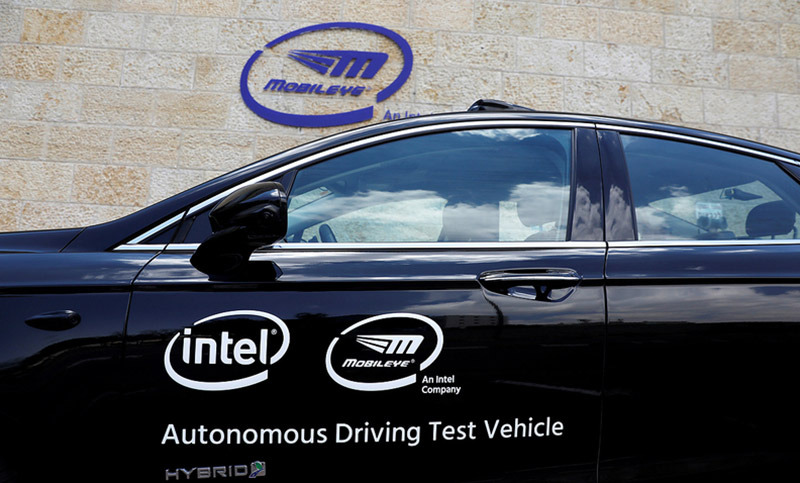In a claimed effort to streamline operations, Intel recently shaved "several dozen" people from its roster of employees working on autonomous vehicles at the company's Silicon Valley Innovation Center in Palo Alto.
Intel confirmed the layoffs to The Information, characterizing the strategy as a "realignment of resources" designed to bolster its autonomous vehicle operation in Israel.
"Changes in our workforce are driven by the needs and priorities of our business, which we continually evaluate," an Intel spokesperson told the publication. "We are committed to treating all impacted employees with professionalism and respect."
Intel is encouraging those who were laid off to find other positions within the company. The report failed to detail what positions were trimmed, though some workers might land at other firms conducting research in the area of self-driving cars. Along with the usual assortment of automotive industry stalwarts like General Motors, tech titans like Google are investing heavily in autonomous platforms.
It appears that Intel is consolidating efforts in the sector around Mobileye, an Israel-based autonomous vehicle solutions company the chip maker purchased in 2017 for $15.3 billion. Mobileye was estimated to have around 600 employees at the time it was acquired, a figure that has since more than doubled, the report said.
Intel, through Mobileye, continues to invest in the space. According to Wednesday's report, the Israeli company late last year acquired Eonite Perception, a Palo Alto startup that develops software for LiDAR-based 3D mapping and tracking. The purchase will allow Intel to move from optical systems (cameras) to the more accurate LiDAR technology in use by some industry competitors.
Apple, for example, is researching LiDAR solutions for 3D object recognition and autonomous vehicle navigation. A report last week claimed the Cupertino tech giant is in discussions with at least four manufacturers of LiDAR hardware that could see integration in a next-generation version of its self driving car test bed.
 Mikey Campbell
Mikey Campbell








 Wesley Hilliard
Wesley Hilliard
 Malcolm Owen
Malcolm Owen
 Andrew Orr
Andrew Orr
 William Gallagher
William Gallagher
 Sponsored Content
Sponsored Content
 Christine McKee
Christine McKee

 Thomas Sibilly
Thomas Sibilly







12 Comments
Elon Musk is backing the wrong horse. LIDAR is the future.
Lidar is the wrong way to go. High cost, slow, high energy. Not a great application for automotive. Betting against Elon Musk is a bad idea. Landing a rocket is more of a better use for lidar. (Space X). This is not speculative. It's fact. Unless something changes, and someone comes up with a different implementation and much more effecient use of LIDAR between now and then. Highly unlikely. I work with all these systems, daily. Besides Apple is more a Toy company these days. They seldom done well in enterprise, because they have half baked solutions, poor security, non-flexible systems, (does not work well with others). Contrary to what some of Apple's strongest marketing has fed to us for years.
Maybe I’m in the minority, but I love being behind the wheel.